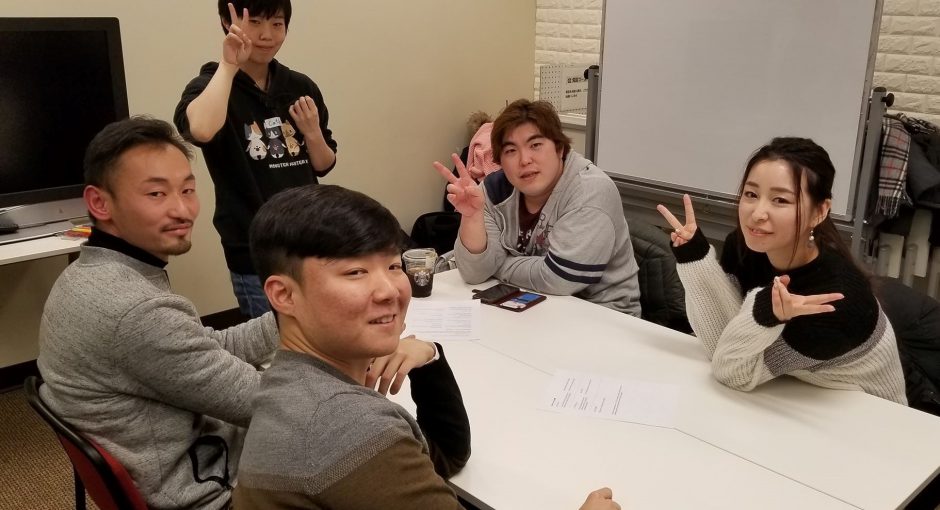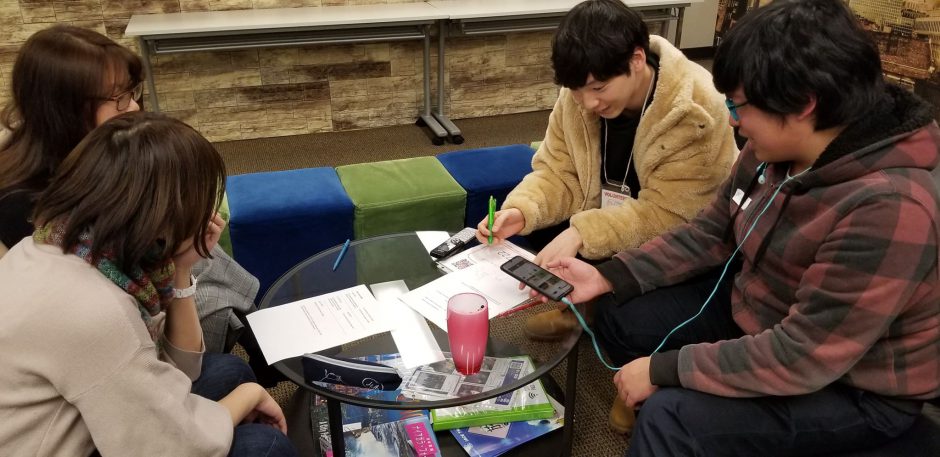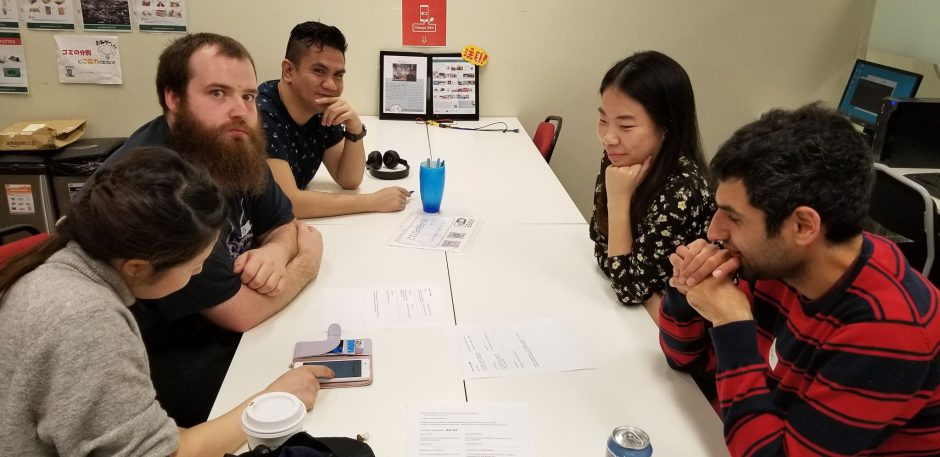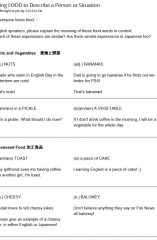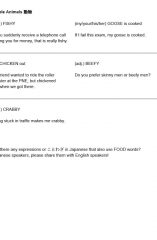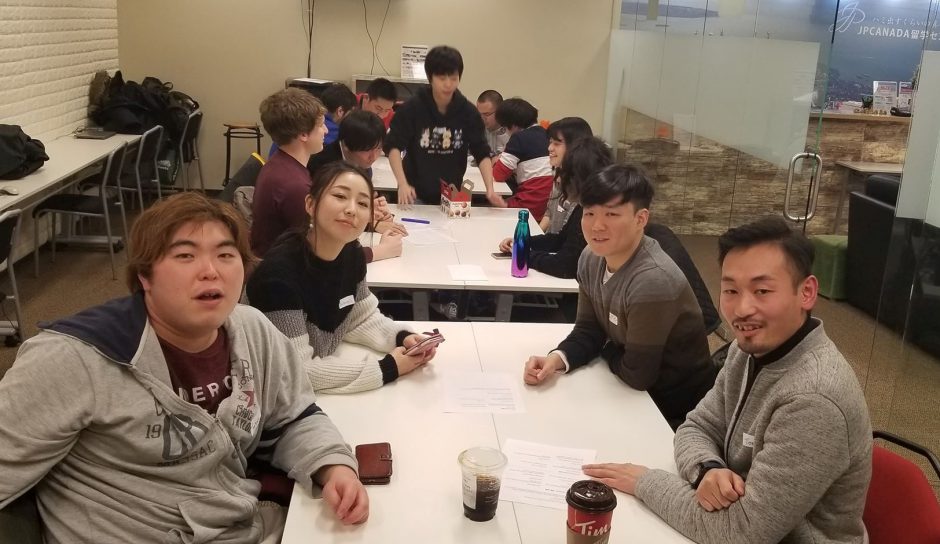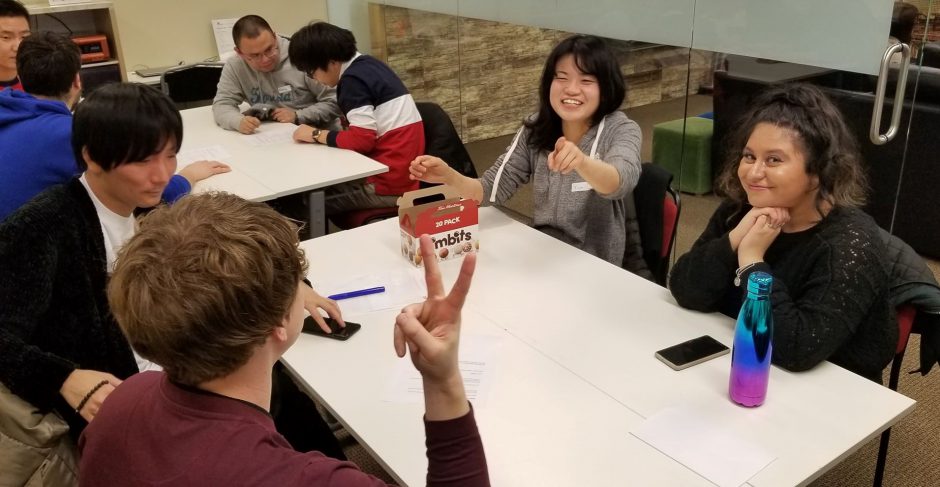Benkyokai 222
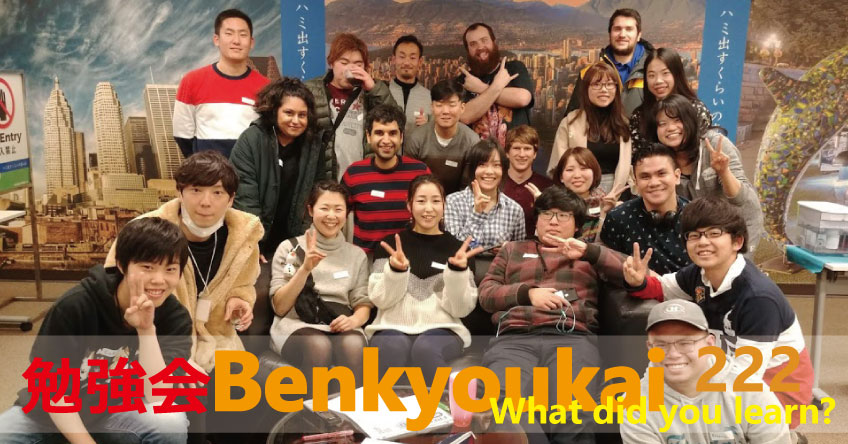

Hi everyone, it’s Cat! I hope everyone had a fluffy snow day last week. Now that the snowstorm has come and gone, Benkyokai is back in full swing! We have many more exciting and interesting activities lined up for the new year so please come and join us! I’m looking forward to meeting more of you this year! ?
Are you curious about what exactly Benkyokai is?
Benkyokai is a English-Japanese language exchange event taking place every Wednesday at JP Canada (#320-890 West Pender) from 6:00pm to 7:00pm. Sign-in begins at 5:45pm, and you’re free to chat with the cool people around you while waiting for the weekly activity that starts at 6 o’clock. During the activity, participants are separated into groups with roughly the same number of English and Japanese speakers, where they will help others learn the language they would like to learn through a game or discussion. If you’re interested in joining us, please sign up on our website or Facebook . We welcome English and Japanese speakers of ALL levels, so don’t hesitate to participate!
This week at Benkyokai, we talked about everyone’s favorite thing in the world– FOOD!
Food is something that we literally cannot live without. No matter where you’re from, food is surely an integral part of your daily life. However, did you know that food is also an integral part of the English language? In English, there are tons of phrases and slang words related to food that native speakers use to describe people or situations. For example, if someone is acting strange or crazy, we can say that they are “nuts” or “bananas”. If you’re facing a difficult problem that you don’t know how to solve, you may say to your friend, “I’m in a pickle.” Or, if you’re like me and can’t wake up in the morning without a cup of coffee, you can say that skipping your morning coffee makes you feel like a vegetable for the whole day.
It’s fascinating, isn’t it? As a native English speaker, I use these phrases and words all the time without realizing they are related to food. Take a look at the phrases we talked about this week below! How many of them do you know?
It seems like our English speakers have all seen or heard these phrases somewhere before! Still, they found themselves… in a pickle when trying to explain why we use food as descriptors. To tell the truth, most of these food phrases have no clear origin. They are merely by-products of the evolution of the English language, just like how young people in Japan have been turning nouns like タピオカ into verbs like タピる.
To finish off the discussion, we asked our Japanese speakers whether there were any phrases or idioms in Japanese related to food or livestock. Some interesting answers I heard were:
海老で鯛たいを釣る: A phrase with the literal meaning of “fishing for Tai with shrimp”. Tai is a delicious fish in Japan that is very expensive compared to shrimp. Therefore, to catch a Tai by giving up a measly shrimp means gaining lots of profits or benefits at little to no cost.
豚に真珠: This phrase literally means “giving pearls to a pig”, and has an English phrase counterpart– “Cast not pearls before swine”. The interpretation of this phrase would be to not give something valuable to someone who cannot understand it.
That concludes our delicious discussion of food-related slang and phrases for this week. Do you know any English or Japanese food phrases that wasn’t on this week’s list? If so, please tell us in the comments section!

